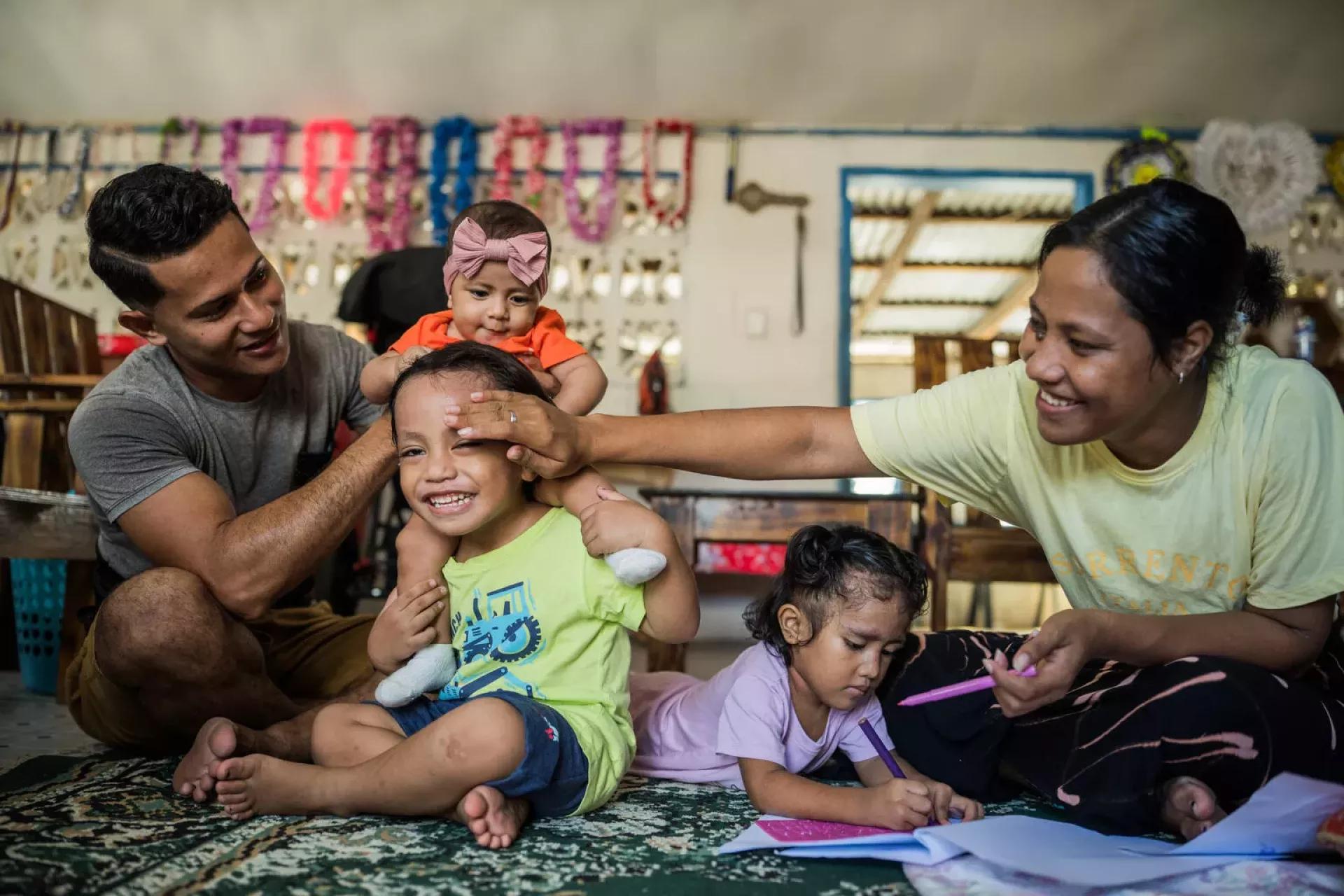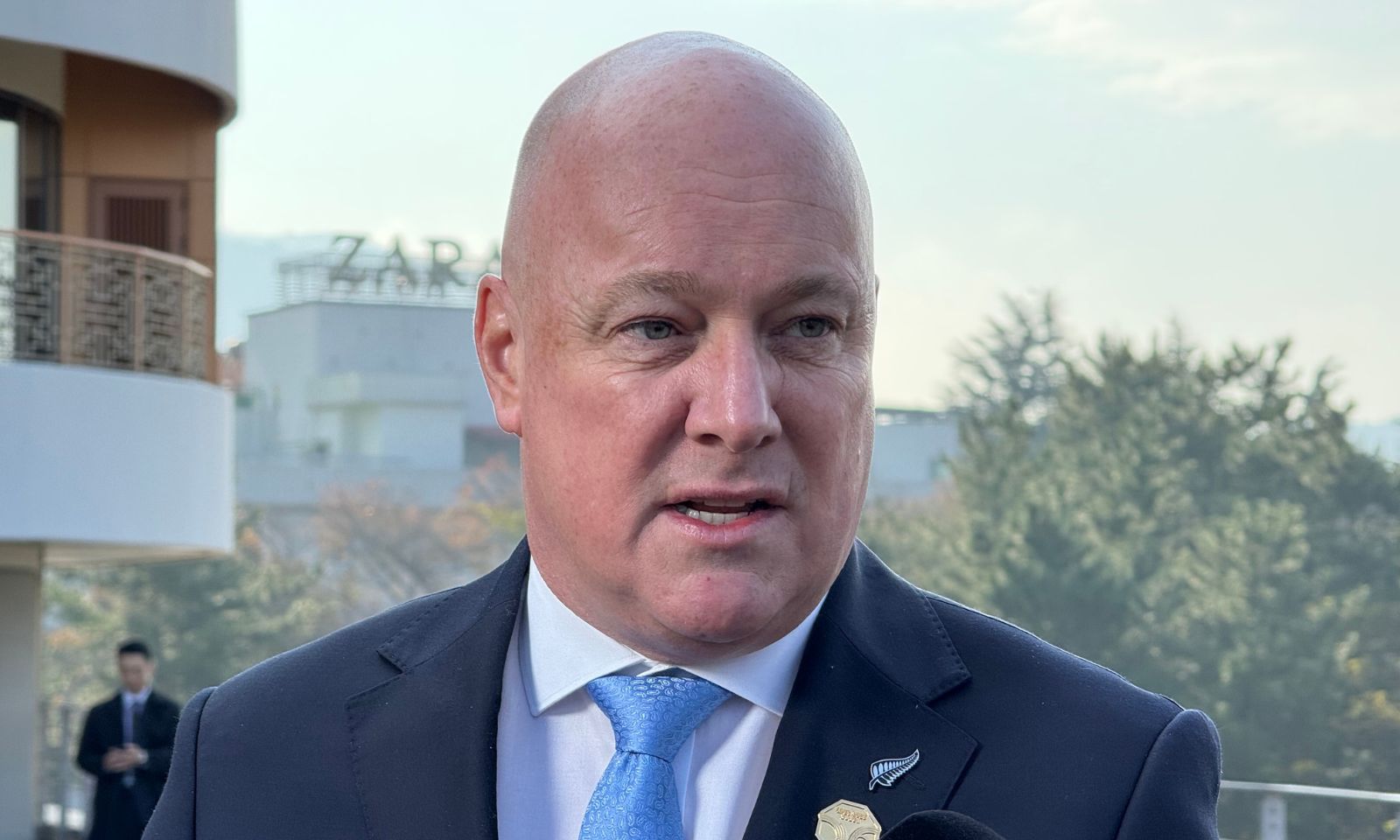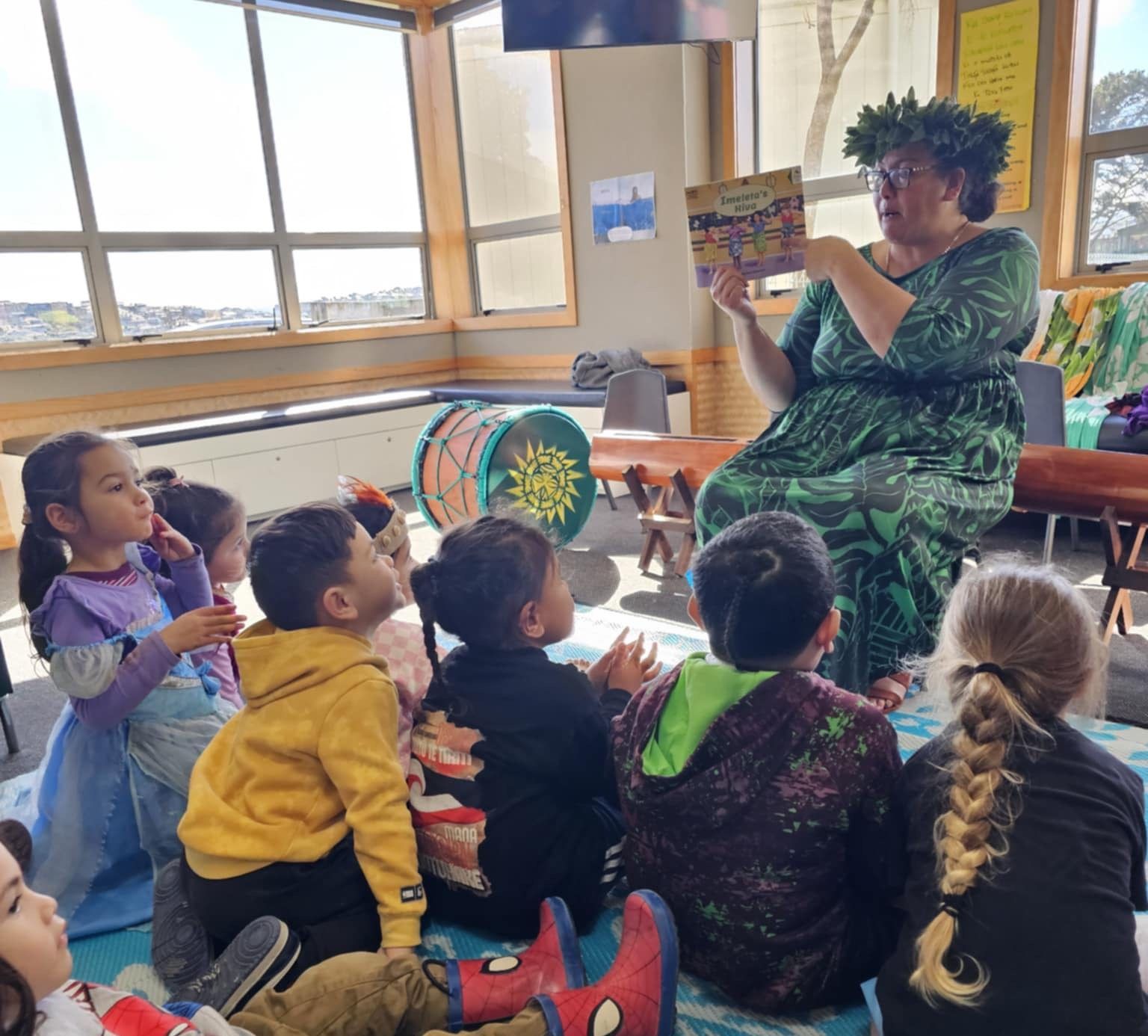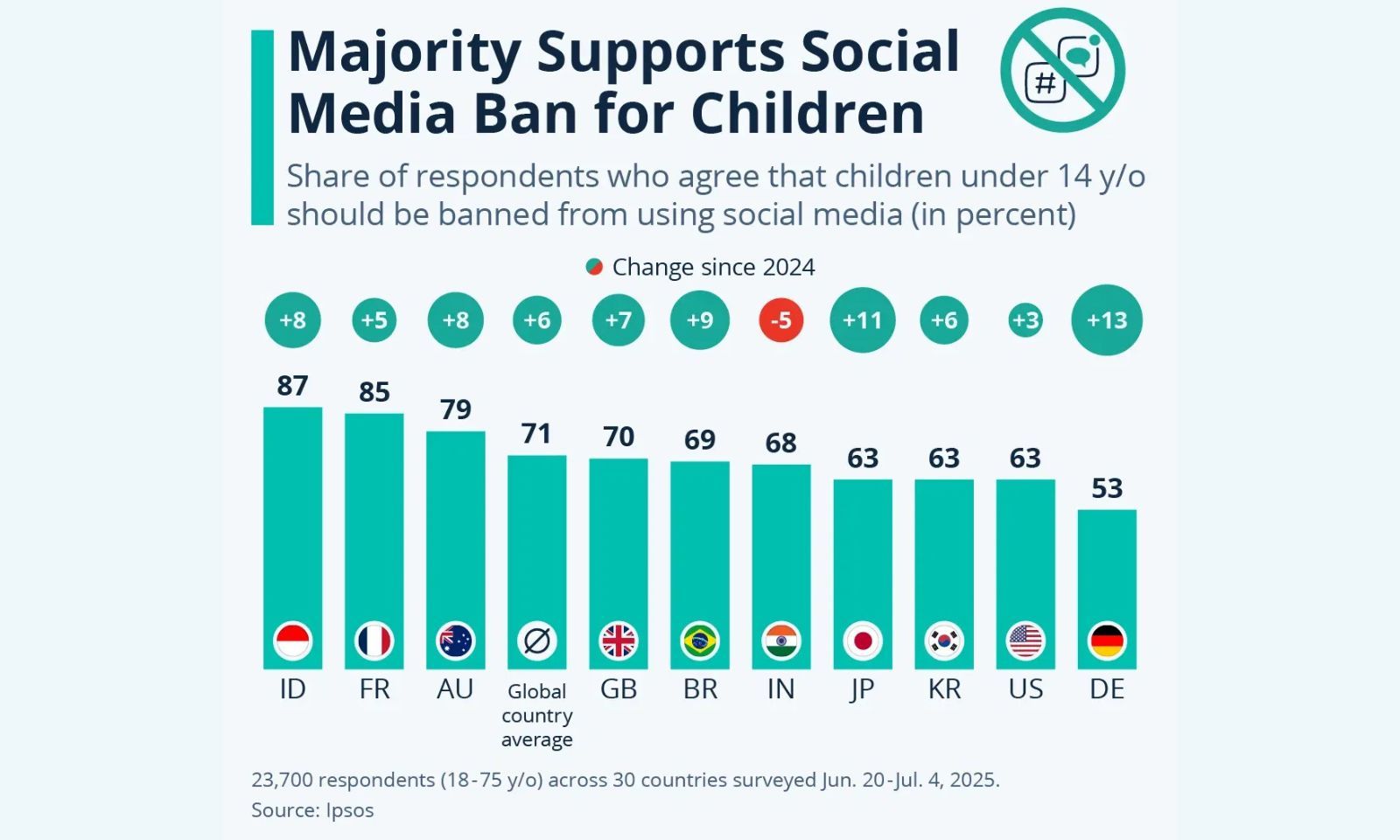

While Pasifika teens in Aotearoa are not facing social-media age rules, their peers across the Tasman Sea are set to be affected.
Photo/UNICEF/Villanueva
Social media ban for U16s: What it means for Pacific youth as the world moves to act
With Australia’s under-16 social-media ban set to begin next month, the debate on both sides of the Tasman is heating up about how the changes could affect teens' friendships, identity, and connections.





UK royal arrest sends shockwaves as Jeffrey Epstein files reference Pacific islands - reports





UK royal arrest sends shockwaves as Jeffrey Epstein files reference Pacific islands - reports
As more countries around the world move to restrict social media access for under-16s, many Pasifika teenagers in New Zealand, Australia, and beyond are wondering what it might mean for them.
The debate is growing, with governments saying they’re defending children’s mental health, while young people question what they stand to lose.
One of the most high-profile changes is happening in Australia: from 10 December 2025, social media platforms will be required to block all users under 16. Platforms that don’t comply could face fines up to A$50 million (NZ$57.08m).
Other nations are adopting or proposing similar restrictions. Malaysia announced this month that it plans to ban under-16s from social media starting in 2026. Denmark is considering a ban for under-15s, inspired by concerns over youth wellbeing.
In New Zealand, while there is no ban yet, the governing National Party introduced a members’ bill in May 2025. The “My Social Media Age-Appropriate Users Bill” would require social media companies to verify that users are at least 16 before they can sign up.
The government argues this would help protect under-16s from cyberbullying, harmful content, and addiction.

Many Pasifika families say social media helps them stay connected across the Pacific, making any ban a major change. Photo/UNICEFUNICEF/Wilander
So far, New Zealand has not passed a full ban; the fate of the bill remains uncertain. Some political parties argue that the proposed rules are unworkable or raise privacy concerns.
In May this year, New Zealand’s Prime Minister Christopher Luxon proposed banning children under 16 years old from using social media, in an effort to protect young people from harms such as exposure to violent content and cyberbullying.
He says the draft law would force social media companies to verify users were at least 16 before allowing them to create an account, or face fines of up to NZ$2 million.

NZ Prime Minister Christopher Luxon: So far, New Zealand has not passed a full ban. Photo/Supplied
"Parents are constantly telling us that they are really worried about the impact that social media is having on their children.”
Australia’s Communications Minister Anika Wells says platforms will be required to deactivate existing accounts owned by children under 16.
She earlier told reporters the description of the new law relies heavily on protecting children from online harms, replacing the burden on parents with a requirement on platforms.
“This is about protecting young people, not punishing or isolating them,” Wells says.
For many Pasifika families in Aotearoa, Australia, or abroad, social media plays a vital role in connection, identity, community ties, and support networks.

Schools and youth groups are preparing to explain the new rules and online-safety expectations to students. Photo/Supplied
Beyond chatting with friends, it’s often how young people stay in touch with family overseas, access cultural content, and build communities across distances.
Experts warn that a ban or strict age restriction for under-16s could therefore have deep implications:
Loss of connection: Pasifika teenagers may find it harder to stay in contact with cousins, aiga or whānau abroad, and to follow cultural or church communities.
Reduced access to support and information: Many youth groups, language or culture projects, and Pacific-led initiatives use social media to share resources, organise events, or support mental health and wellbeing.
Digital divide and inequality: Families without the means to provide computers or other ways of connecting may see isolation worsen.

Countries around the world, including Australia and Malaysia, are moving to restrict social media for under-16s, with New Zealand still debating its position. Photo/Ipsos
Advocates argue that restrictions could protect young people, including Pacific youth, from harmful content, cyberbullying, exploitation, and internet addiction.
For communities already carrying mental-health burdens and identity pressures, protection may be welcomed.
What do young people think?
Some under-16s say they understand the risks, but others are not ready to give up social media.
In interviews with Nine's A Current Affair, a group of 11- to 15-year-old Australians reacted, from supportive to strongly opposed.
One teenager, Zach, told the network: “I think that we should have at least Snapchat, because Snapchat is a fun way to communicate with your friends.”
Another, Ben, says: “I have an average of three hours.” While Elloise adds, “My daily average is one hour and eight minutes.”
Their voices reflect a common feeling: that social media is part of everyday life, a place to connect with friends, relax, and build identity.
Many young people fear that a blanket ban could feel like being cut off from their social world.
Studies and public opinion polls show growing support among adults for protections for underage social media users.
As laws and proposals move forward in Australia, Malaysia, possibly New Zealand and beyond, it will be vital that Pasifika youth, families, and community leaders have a voice.

Some teens say the ban could push them to spend more time together offline but worry it may also make it harder to stay connected with family across the Pacific. Photo/Supplied
Policymakers need to understand not just the risks, but also the cultural, social, and community value of social media for Pasifika communities.
If bans or age restrictions go ahead, there must be care to protect access to cultural connection, language, identity, and diaspora ties.
For many Pasifika families abroad, social media isn’t just about entertainment, it’s how they keep their whenua or vanua alive.